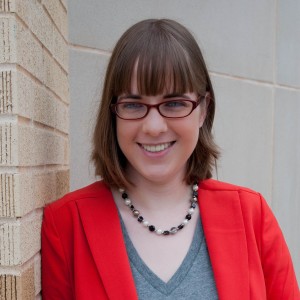I hope that the answer is yes. I understand that the leadership boards of almost every single denomination in America is filled with babyboomers who have “earned their stripes” and “understand the real world.” I understand the challenges that young men and women face before being heard in the church. (Read more – here.)
If we want to change the Millennial Exodus, then we need to address the problem at every level.
- There is a need to minister to the individual needs of emerging adults.
- There is a need to provide resources and training to church leadership to reach and minister to emerging adults.
- There is a need for denominations to lead the way through allowing young adults to speak up and speak out.
Here is a story of one group who is seeking to bring transformation to their denomination.
I recently interviewed Mark Hilbelink, who leads a group of people who have named themselves YALT – which stands for Young Adult Leadership Taskforce. YALT serves within the Christian Reformed Church in North America and the Reformed Church in America. The YALT team originally formed under the Leadership Development Department of the denomination, but now has become its own entity.

Mark Hilbelink
The leadership of YALT are not paid by denomination, but the denomination provides paid staff support for the movement. The team is composed by various pastors and bloggers who want to influence the denomination (For example – Hilbelink pastors a church in Texas).
When the team originally formed, they planned events and conferences, but found that this was an expensive, and ineffective way to impact their denomination. More recently, YALT has focused on their on-line presence. You can find their Facebook profile and a website.
As for their impact within the denomination, Mark states that he believes that YALT seeks to get people on board with the mission to reach young adults, and through influencing denominational events.
Mark is often asked why Millennials are leaving the church, but Mark believes (like myself), that there is not a singular reason why Millennials are leaving. He believes that their lack of attachment to the local church is due to their life phase. Millennials are transient which makes it difficult to connect with community. He believes that what overall truly attracts Millennials is not a hip church, but one that is healthy.
Mark shares that sometimes church leadership “uses us [the YALT team] to keep Millennials, but not to bring change to our church.” Marks believes that while the church may not need to change its doctrine or practices, change is needed in order to stay relevant in today’s world.
If you have an interest in launching a group to influence your denomination, EA Resources can help. Contact us at gdavid@earesources.org.
 Dr. G. David Boyd is the Managing director of EA Resources. He is also the founder of the EA Network, a Network that seeks to equip the parents and churches to meet the needs of emerging adults.
Dr. G. David Boyd is the Managing director of EA Resources. He is also the founder of the EA Network, a Network that seeks to equip the parents and churches to meet the needs of emerging adults.







 David Becker, of East Longmeadow, Massachusetts, was charged with two counts of rape and one count of indecent assault and battery, according to court documents, after an April 2 incident in which he was accused of digitally penetrating two girls who were sleeping in a bed after a house party. Becker and the alleged victims, who are not being identified, were all seniors.
David Becker, of East Longmeadow, Massachusetts, was charged with two counts of rape and one count of indecent assault and battery, according to court documents, after an April 2 incident in which he was accused of digitally penetrating two girls who were sleeping in a bed after a house party. Becker and the alleged victims, who are not being identified, were all seniors. I hope that our nation still believes in rape. Several high profile rape cases among young adults have received alarmingly light sentences. A Stanford University student named Brock Turner received a six month sentence for what his father described as “twenty minutes of action” when he rapped an unconscious woman.
I hope that our nation still believes in rape. Several high profile rape cases among young adults have received alarmingly light sentences. A Stanford University student named Brock Turner received a six month sentence for what his father described as “twenty minutes of action” when he rapped an unconscious woman. This morning I want to throw in the towel.
This morning I want to throw in the towel.

 At the developmental margins by definition, the in-betweeness of young adults is a huge part of why congregations are so flummoxed about them. Churches have long served children, youth, parents, empty-nesters, and elders. But emerging adults are a special kind of moving target, no longer youth but not quite adults.
At the developmental margins by definition, the in-betweeness of young adults is a huge part of why congregations are so flummoxed about them. Churches have long served children, youth, parents, empty-nesters, and elders. But emerging adults are a special kind of moving target, no longer youth but not quite adults. 1. A survey of 1,184 of them found that during the previous three months, 80 percent had engaged in at least one of the following drunkorexic behaviors. While they do mention research, I would like to know more about this research. The behaviors listed in which 80% are participating could be mild or more severe. For example, the third behavior could refer to cutting back on calories simply because you know you will be drinking. I know many people who do this regularly, but it is not at an unhealthy level.
1. A survey of 1,184 of them found that during the previous three months, 80 percent had engaged in at least one of the following drunkorexic behaviors. While they do mention research, I would like to know more about this research. The behaviors listed in which 80% are participating could be mild or more severe. For example, the third behavior could refer to cutting back on calories simply because you know you will be drinking. I know many people who do this regularly, but it is not at an unhealthy level.

